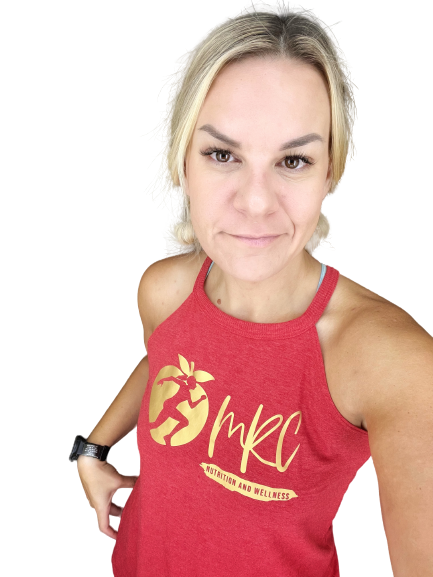Weight Gain After Ultramarathon: It’s Not Fat!

As a dietitian and a running coach, I often have athletes who want to use running not only to achieve a personal goal, but to slim down and drop a few pounds in the process. And quite often, they get a little surprise when their weight rises in the days after their event. I’ve had many clients calling me with the concern of weight gain following a race and I have watched the numbers go up on my own scale after many ultras. I give my clients comfort by letting them know this could be attributed to various physiological factors, predominantly revolving around water retention, lactic acid buildup, and the body’s own recovery process. Let’s dive into weight gain after ultramarathon.
Water Retention
One of the primary reasons for immediate post-ultramarathon weight gain is water retention. During an ultra, athletes can lose a substantial amount of fluids through sweat as their bodies work tirelessly to cool down and maintain optimal temperatures. Dehydration during the race can lead to an immediate reduction in body weight, giving the illusion of significant fat loss.
However, in the recovery phase, athletes tend to rehydrate aggressively to replenish lost fluids. This rapid intake of fluids, combined with the body’s natural response to hold onto water due to increased cortisol levels and tissue repair processes, leads to temporary weight gain. This phenomenon is a natural part of the body’s recovery and shouldn’t be mistaken for fat gain.
Lactic Acid Buildup
Another factor contributing to post-ultra weight gain is the accumulation of lactic acid in the muscles during prolonged and intense exercise. Lactic acid buildup occurs when the body breaks down glucose for energy without sufficient oxygen, leading to the production of lactate. This process can cause a burning sensation and fatigue in the muscles during the race.
Following the event, muscles might experience inflammation and micro-tears, contributing to increased fluid retention as the body works to repair these tissues. This repair process, combined with the clearance of excess lactate, can lead to temporary muscle swelling and weight gain, which also should not be mistaken for an increase in body fat.
ADVERTISEMENT

Recovery Process
The body’s recovery after an ultramarathon is a complex and intricate process. In the immediate aftermath of such a physically demanding event, the body undergoes numerous physiological changes to repair damaged tissues, replenish energy stores, and restore hormonal balance.
The adrenal glands also take quite a hit during ultramarathons. These tiny glands on your kidneys are responsible for hormones and regulating body functions – many of the ones listed above. Competing in intense physical activity such as an ultra can lead to temporary adrenal stress. This adrenal fatigue can be displayed as general fatigue, body aches, and even nervousness.
It’s Not Fat
During this recovery phase, the body actively works to repair and rebuild muscles, which involves retaining fluids to aid in the healing process. Moreover, the body may require additional glycogen storage, leading to further water retention as glycogen is stored with water in the muscles and liver. Eating foods rich in antioxidants like berries and leafy greens can help reduce inflammation in the body. Electrolyte-rich foods and beverages will help replenish energy stores and support muscle recovery.
It’s crucial to understand that the weight gain experienced post-ultra is predominantly temporary, likely just fluctuations in water, and attributed to the body’s natural mechanisms for healing and recovery. Athletes should focus on proper hydration, nutrition, rest, and gradual return to training to support their bodies in the recovery process.
To wrap up, post-ultramarathon weight gain is a multifaceted process that has little to do with calorie consumption during the event but more likely involving water retention, lactic acid buildup, and the body’s recovery mechanisms. Understanding these physiological responses can help athletes navigate their post-race recovery effectively and avoid unnecessary concern over temporary weight fluctuations.
Remember, consulting with a qualified sports dietitian like me or healthcare professional can provide personalized guidance to optimize post-ultramarathon recovery and overall athletic performance. When you’re dealing with weight gain after ultramarathon, remember that it’s not fat!
ADVERTISEMENT










